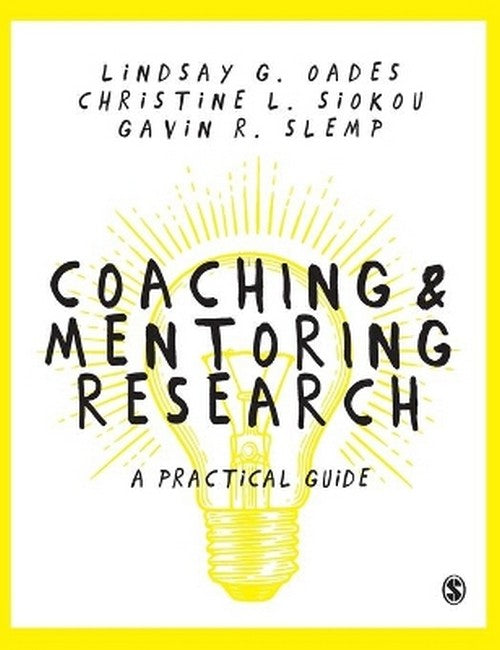Part I: Becoming a researcher in coaching or mentoring 1 Benefits of research 2 Impactful research 3 Research teams 4 Avoiding pitfalls 5 Theories of knowledge Part II: Phases of the research process 6 Choosing a research methodology 7 Research scope 8 Research questions 9 Reviewing literature 10 Research proposals 11 Research ethics 12 Feasible timelines 13 Data collection and analysis 14 Dissemination of research Part III: Quantitative methods for coaching and mentoring research 15 Choosing quantitative methods 16 Experimental designs 17 Survey designs 18 Common quantitative methods and analyses 19 Developing confidence in statistics Part IV: Qualitative and mixed methods for coaching and mentoring research 20 Choosing qualitative methods for data collection/generation 21 Choosing qualitative methods for data analysis/interpretation 22 Programme evaluation and action research 23 Case study designs 24 Mixed methods Appendix: Examples of process, outcome and implementation/fidelity research in coaching and mentoring

